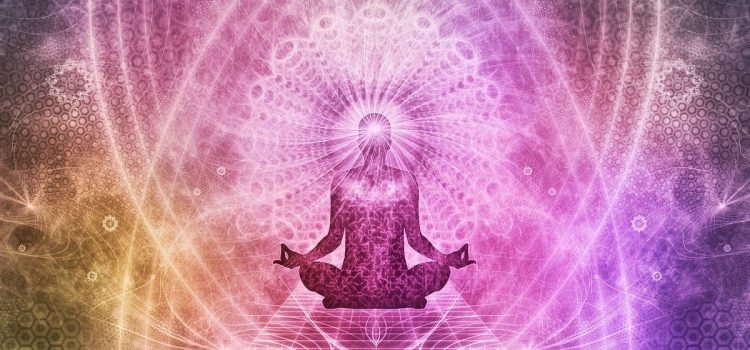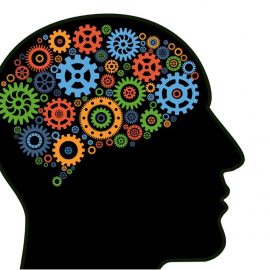

This article gives you a glimpse of what you can learn with Shortform. Shortform has the world’s best guides to 1000+ nonfiction books, plus other resources to help you accelerate your learning.
Want to learn faster and get smarter? Sign up for a free trial here .
Do you consider yourself a spiritual person? Is it true that people who practice spirituality tend to be happier than those who don’t?
Studies have shown that those who have spirituality or religion in their lives tend to be happier and less depressed than those who don’t. Integrating some form of spirituality into your life will infuse it with deeper meaning and make you appreciate its transience and fragility.
Keep reading to learn about the benefits of spirituality.
The Importance of Spirituality
Research shows a strong positive correlation between spirituality and happiness in that spiritual people—that is, people who spend time considering various spiritual states—are happier with their lives overall. In turn, this elevated happiness grants them better mental and physical health, greater longevity, and an increased ability to deal with stressors.
You don’t have to be religious to practice spirituality. Spirituality means connecting with something greater than yourself, whether it’s God, the Universe, or even your higher self. When you accept spirituality into your life, you’ll come to see the glory of all existence, deepen your love for others, and find deep meaning in every moment of your life—even the most mundane.
Spirituality Leads to Stillness
In his book Stillness Is the Key, Ryan Holiday writes that practicing spirituality—that is, connecting with something greater than yourself—can help you cultivate stillness. Stillness, explains Holiday, is a perceptible state of mind that’s been sought and recognized as valuable throughout all of history and across many belief systems. It’s a state of clarity, contentment, peace, awe, love, fulfillment, and brilliance. He likens it to the Buddhist concept of “satori,” an experience of deep insight and awakening, or a state of enlightenment.
Additionally, stillness is a state of being that gives you strength and courage to deal with adversity and difficulty. For example, Holiday says stillness was the quality that allowed Anne Frank to endure the horrific experience of persecution in Nazi Germany with such grace and peace of mind.
Holiday says that practicing spirituality contributes to stillness in three ways:
- It allows you to relax, knowing that things are being taken care of on a grander scale. Holiday says putting ourselves at the center of the universe is egotistical, and believing only in the material world leads to nihilism, fragility, and depression. When you remember that there is a higher power and a higher purpose or guiding force in life, you can relax and feel at peace. Putting yourself in perspective of the vastness of the universe can quiet your mind and allow for stillness.
- It gives you a sense of oneness with everything. When you recognize the interconnectedness of all of humanity and all of life—past, present and future—you feel that you’re one with your ancestors and with all of the living world. This kind of connectedness encourages humility and empathy, which lead to forgiveness and understanding.
- It empowers you to accept death without fear. Don’t try to escape death, Holiday says. Knowing how to live well also teaches you how to die well. We spend so much of our life in fear or denial of death instead of living life to the fullest. Remember, your life will end in permanent stillness, so practice it in preparation.
| Spirituality for Atheists If you’re someone who believes in God, Holiday’s advice in this section is likely straightforward and easily applied. But how does someone who doesn’t believe in any “higher power” reap the benefits of spirituality? If that’s the case for you, you might think about the scientific concept of “energy” as equivalent to the concept of “spirit” and contemplate the fact that everything in the universe is actually made of energy. Quantum physics has revealed that even the solid matter that makes up you and everything around you is really energy at its core. And on that smallest level, there is quite literally no separation between anything. This might not give you the sense that something greater is “in control” but it certainly points out that you are interconnected with everything in the vast universe. And the law of conservation of energy tells us that energy can never be created or destroyed; it can only be transformed. This means that all of the energy that comprises you will exist in some form even after death. |
Spirituality Makes Your More Resilient
In The Gifts of Imperfection, Brené Brown argues that practicing spirituality makes you more resilient. Brown defines spirituality as recognizing the existence of a higher power that connects us all. The “higher power” could be a religious power, such a god, but it doesn’t have to be. It could be nature, or “the universe.”
According to Brown, practicing spirituality increases resilience in a number of ways. First, the feeling of connection that spirituality brings makes overcoming tough times feel easier. Being resilient is less challenging if you feel you’re not alone.
Second, it’s easier to be resilient if you believe that a higher power is working to bring love and compassion into your life. This belief will reassure you that even though things are tough now, better times are just around the corner.
Finally, spirituality can provide a sense of purpose, meaning, and perspective that contributes to resilience. For example, you may adopt the view that your higher power has a plan for you that’s ultimately out of your control—a plan that includes tough times. Your purpose isn’t to question this plan: it’s to get through these tough times and emerge stronger for it. This ascribes meaning and purpose to your struggles, making you feel more motivated to overcome them.
TITLE: The Gifts of Imperfection
AUTHOR: Brené Brown
TIME: 42
READS: 112.4
IMG_URL: https://www.shortform.com/blog/wp-content/uploads/2020/11/the-gifts-of-imperfection-cover.png
BOOK_SUMMARYURL: the-gifts-of-imperfection-summary-brené-brown
AMZN_ID: XYZ
Weave Spirituality Into Daily Life
In his book The Art of Happiness, the Dalai Lama echoes Holiday on the fact that you don’t have to believe in God to reap the benefits of spirituality. What matters, according to the Dalai Lama, is the extent to which you action the positive elements of your spirituality. Actioning requires a calm mind and discipline.
Develop a Calm Mind
To weave spirituality into your life, develop a calm mind, recommends the Dalai Lama. When your mind is calm—undisturbed by distracting negative thoughts and emotions—you see clearly what’s going on and can use your spiritual teachings effectively.
(Shortform note: The Dalai Lama doesn’t specify what it means to “see clearly what’s going on.” It makes sense, though, that he means recognizing The Four Noble Truths and then pursuing the Noble Eightfold Path that leads to the end of suffering.)
To develop a calm mind, the Dalai Lama recommends meditation but adds that most religions have their own practices for this and that practitioners of a specific religion can perform those.
The Dalai Lama’s meditation for developing calmness of mind is as follows:
- Connect to your motivation to experience your mind neutrally.
- Draw your attention away from outside distractions, like sounds, and inside ones, like thoughts.
- Don’t simply tune out, though: Remain alert, trying to experience your mind as it exists in its purest form, un-preoccupied with distracting concepts or objects.
Develop Disciplined Thinking
The second recommendation for weaving spirituality into your life is to be disciplined about implementing your spiritual learning, says the Dalai Lama. In every situation, take these three steps:
1) Educate yourself both about your emotions and the circumstances that give rise to them, counsels the Dalai Lama. By doing this, you root out the misunderstandings of the world that lead to negative emotions and therefore unhappiness.
2) Develop your motivation to change. Simply understanding why you feel certain emotions can’t alone eradicate them, claims the Dalai Lama. You must desire to rid yourself of unhappiness and negative emotions.
3) Make the effort to change. Finally, you have to be willing to put in the effort to change your perspective about the situation.
Let’s say someone on the subway is invading your personal space. If you’re disciplined, you first sense that you’re being provoked and ask yourself why you’re angry—in other words, you educate yourself. Then, you connect with your motivation to change for the better: You determine that you wish to be free of this anger. Finally, you exert yourself to change by, for instance, combating your anger with compassion toward the person or by changing your perspective on the situation to see its benefit to you.
TITLE: The Art of Happiness
AUTHOR: Dalai Lama
TIME: 37
READS: 78.6
IMG_URL: https://www.shortform.com/blog/wp-content/uploads/2022/02/the-art-of-happiness-cover.png
BOOK_SUMMARYURL: the-art-of-happiness-summary-dalai-lama
AMZN_ID: XYZ
Final Words
We are all, in one way or another, on a spiritual journey. To reap the benefits of spirituality, practice whatever form of spirituality resonates with you. It can be a religious spirituality, guided by the tenets of a religion, or a secular spirituality, guided by the values of kindness, compassion, and so forth.
If you enjoyed our article about the benefits of spirituality, check out the following suggestions for further reading:
The Power of Positive Thinking
In The Power of Positive Thinking, Norman Vincent Peale says there is no problem or obstacle you can’t overcome with faith and a positive mindset. This self-help classic outlines the practical techniques of applied Christianity to help you take control of the events in your life rather than be directed by them.
Like many people, you might feel that you’re simply existing in life, going through the motions without understanding what it all means. In The Purpose Driven Life, Pastor Rick Warren reveals the meaning of life from a Christian perspective—five purposes that you were created by God to fulfill: worship, unselfish fellowship, spiritual maturity, your ministry, and your mission.
The Bhagavad Gita is a conversation between Prince Arjuna and Krishna, a mortal incarnation of the god Vishnu. Arjuna is worried about an upcoming battle for succession, since he will be fighting against his kinsmen. In explaining why Arjuna should fight, Krishna goes over a wide variety of spiritual and religious topics relating to dharma, karma, spirituality, and the cycle of reincarnation.

Want to fast-track your learning? With Shortform, you’ll gain insights you won't find anywhere else .
Here's what you’ll get when you sign up for Shortform :
- Complicated ideas explained in simple and concise ways
- Smart analysis that connects what you’re reading to other key concepts
- Writing with zero fluff because we know how important your time is







The information provided in this blog post is highly valuable.